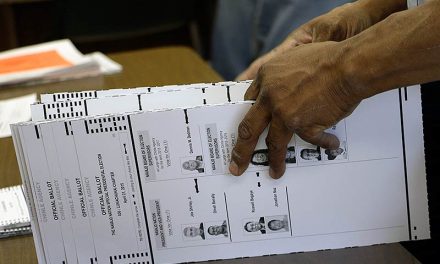
Guest Column | Money for stray dog problem could be better spent
By Cindy Yurth
While I applaud Council Delegate Eugene Tso’s efforts to do something about the stray dog issue (“Nation takes steps to confront animal overpopulation,” April 7), I’m wondering if the $267,000 he is proposing to allocate could be better spent.
Two hundred and sixty-seven thousand dollars for 4,000 surgeries works out to $66.75 per surgery, which isn’t bad, but currently a number of nonprofits are doing nearly that volume at zero cost to the tribe.
Denver-based Soul Dog Rescue performed 2,345 surgeries last year at 19 clinics throughout the reservation. The Parker Project, based in Phoenix, performed about 2,000 by my calculations and is set to nearly double that this year. Nuzzles & Co., Rez Dawg Rescue, Animal Balance, Best Friends, Turquoise Paw, and Christian Veterinary Missions each contribute several hundred surgeries per year.
And an exciting new completely grassroots group, Rez-Solutions, just started last June and have been spaying an average of 40 animals almost every weekend all over Diné Bikéyah.
I’ve been working in animal rescue on the reservation since 2005 and I have never heard of the group Altered Tails, which, under the legislation, would partner with Animal Rez-Q to provide the surgeries.
Maybe they are the largest provider of spay-neuter services in Arizona, as they advertise, but they have never done a clinic on the nation, which involves a lot of maneuvering.
All the groups that have been doing this for years have their connections, buildings, etc., already in place. Recently, Nuzzles and Soul Dog went in together to acquire the former Kayenta Animal Shelter, which they are turning into a nonprofit pet wellness clinic.
Instead of consulting with the boots already on the ground, this legislation proposes a sole-source contract to an off-reservation non-profit that has no experience on the Navajo Nation.
It’s true that Animal Rez-Q, founded by the former director of the Navajo Nation Veterinary and Livestock Program, would provide the “in,” but why re-invent the wheel?
All the other groups have been working in partnership with each other, the communities they serve, and animal rescues that operate on the Navajo Nation, and can identify the holes that need to be patched.
It should also be noted that the Navajo Nation has its own veterinary program with a very dedicated veterinarian who volunteers her time with Rez-Solutions almost every weekend. It has three functional veterinary clinics.
Some years ago, the nation purchased a mobile spay-neuter clinic that broke down after about a year and, as far as I know, is just sitting there waiting to be repaired.
For $267,000, the nation could hire a second vet, fix the spay-neuter van, and have enough left over to maybe start construction on the proposed Crownpoint Animal Shelter (whatever happened to that?), or fix up the existing shelters so they are more humane and can hang onto animals longer.
Another alternative would be to put a contract out for bid for 4,000 spays and see if it could be done more cheaply. If Navajo preference is an issue, Rez-Solutions is the obvious choice with two Navajo founders and an almost exclusively Navajo cadre of volunteer vet techs.
A third option would be to simply support the existing organizations better. For instance, Soul Dog has been asking for years if the nation could spot them a couple of motel rooms at its properties in Chinle, Window Rock, and Monument Valley, so volunteer vets and techs have a place to stay when they come down for the clinics.
That seems like little enough to ask, especially in the off-season when the rooms probably are sitting vacant, and would probably result in a net gain to the tribe as the volunteers need to eat and may purchase some souvenirs.
Before this legislation is passed, I would urge the Council to consult with its tribal veterinarian and technicians, as well as personnel from the currently operating spay-neuter non-profits.
It’s true the animal population issue is urgent, but a sustainable solution will require careful reflection, consultation, cooperation, and planning.
Cindy Yurth, formerly a reporter for the Navajo Times, is president of the Blackhat Humane Society.








 Highway 264,
Highway 264, I-40, WB @ Winslow
I-40, WB @ Winslow